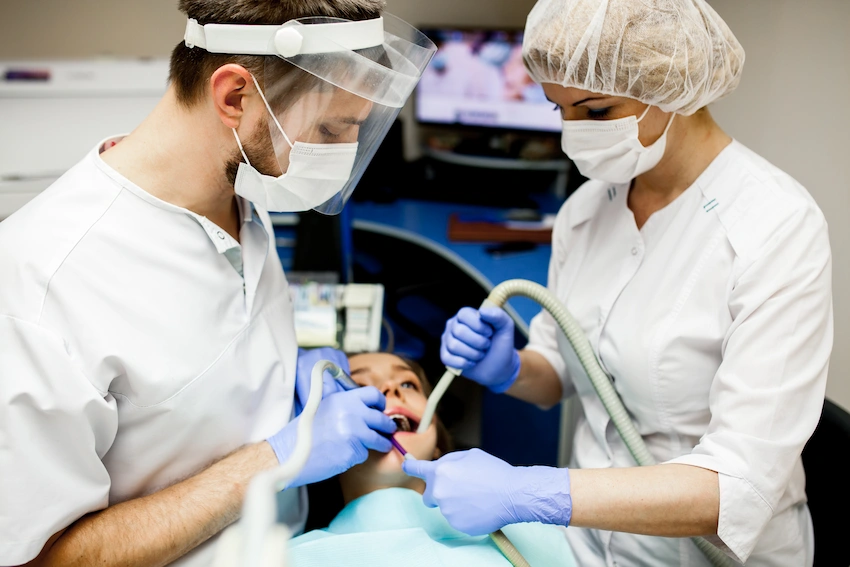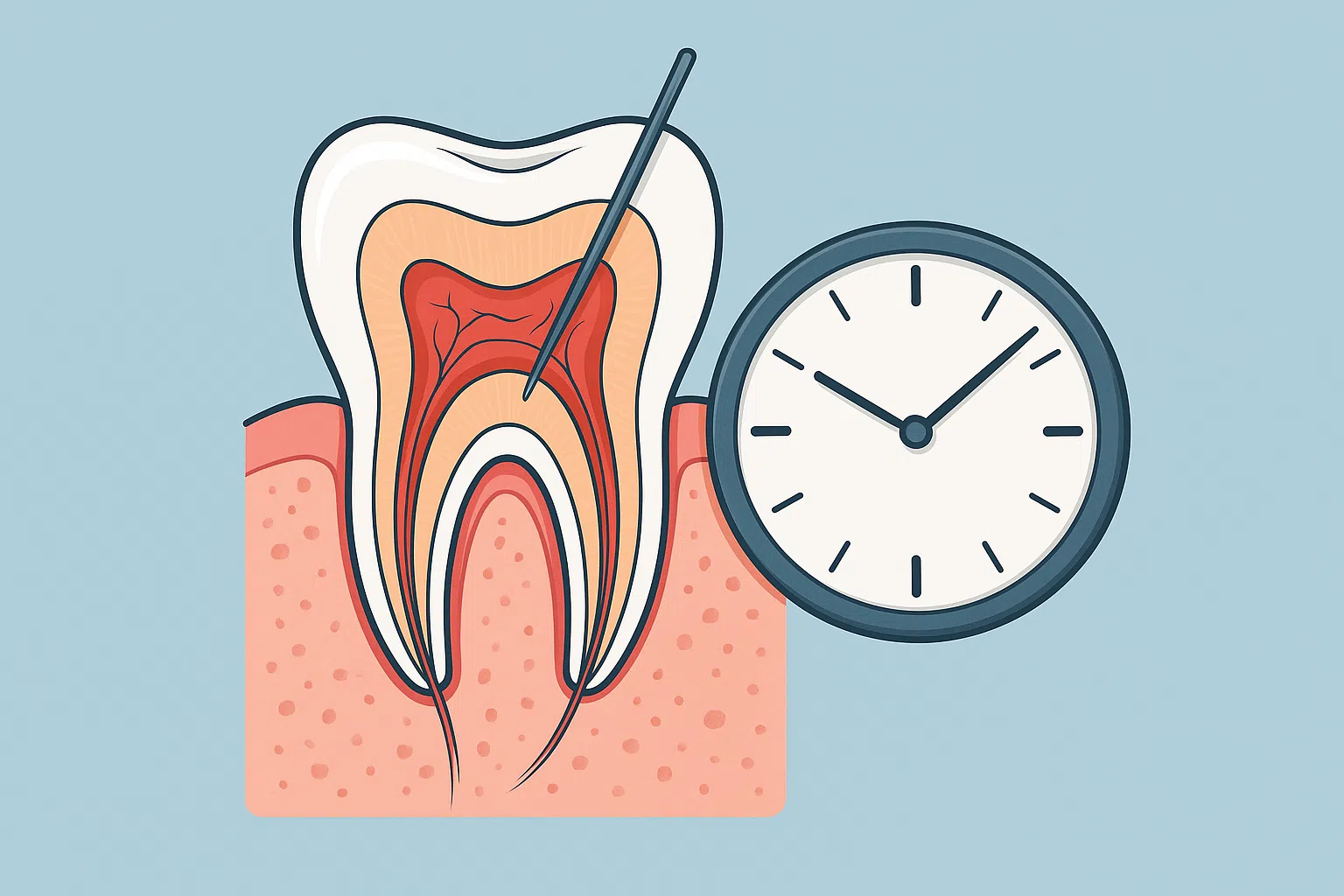Deep Dental Cleaning: The Complete Guide to Oral Health
The processes of periodontal scaling as well as root planing is generally accepted as the two most crucial procedures in the context of deep dental cleaning. These processes mainly concentrate on the fundamental goals of eliminating plaque, tartar, and bacteria that have been deposited beneath the gums.
It is highly recommended that individuals carry out regular daily brushing and flossing, although, that in itself might not be sufficient for the proper upkeep of the teeth and gums sometimes there is need to seek the attention of experts in order to be able to get rid of all the plaque and bacteria present on the teeth and gums. This blog will be going in-depth to discuss deep teeth cleaning, its importance, its procedure, and its effects on overall body oral health.
What Is Deep Dental Cleaning?

What is deep dental cleaning? Deep cleaning is a dental or dental hygienist dental procedure aimed at the removal of plaque and tartar deposits that have been accumulated below the gum line. It should be noted that in a deep cleaning, the main areas are those where the accumulation of tartar and bacteria may result in a more severe case of destruction of the gums, such as gum disease.
The dentist or dental hygienist carries out the operation with the help of various tools, depending on the condition of the roots and teeth, and cleans out the roots/ tooth surfaces while smoothing them out.
Thus, dental problems like gingivitis (gum disease), infection, or even tooth loss can be avoided. What is deep dental cleaning from the perspective of oral health? It is a preventive solution that ensures your gums remain clean and free of bacteria and that your teeth remain in good condition.
Why Do You Need Deep Dental Cleaning ?
Why do you need deep dental cleaning? The processes of periodontal scaling as well as root planing is generally accepted as the two most crucial procedures in the context of deep cleaning the teeth.
These processes mainly concentrate on the fundamental goals of eliminating plaque, tartar, and bacteria that have been deposited beneath the gums. It is highly recommended that individuals carry out regular daily brushing and flossing, although, that in itself might not be sufficient for the proper upkeep of the teeth and gums sometimes there is need to seek the attention of experts in order to be able to get rid of all the plaque and bacteria present on the teeth and gums.
In this blog, the writer is going to be very specific about deep teeth cleaning, discussing what it is, its necessity, its process, and its effects on the entire body’s oral health. Deep teeth cleaning plays a major part in oral hygiene as it not only saves the teeth and gums but also the whole body.
The association of poor oral hygiene with different diseases such as cardiovascular diseases, diabetes, and so on has been established and therefore it can be concluded that the people that go through deep teeth cleaning are guarded against these diseases.
Deep cleaning with early-stage gum disease is very important as it prevents the loss of teeth. What is deep cleaning of teeth in terms of prevention? It’s a preventative measure to stop the evolution of periodontal disease and keep the situation from getting worse.
The Process of Deep Dental Cleaning

What is deep dental cleaning in terms of a procedure? The main stages of deep cleaning are usually addressed in the following ways:
- Scaling: The dentist or hygienist using the specialized tools they have, removes calcification and bacteria from the surface that is above the gums and that is under the gums. Scaling is normally done with an ultrasonic scaler or hand instruments, the choice of which depends on the degree of the build-up. The high-frequency vibrations of the ultrasonic scaler call for the use of the scaler while the hand tools are used for the precise cleaning of the difficult-to-reach areas.
- Root Planing: The following step after scaling is root planing. The dentist during this procedure removes or cleans off the roots of your teeth to get rid of the bacteria and the plaque that are left. Besides, root planing gives the gums the power to reattach the teeth, which is very important for the process of healing and the reduction of the chances of getting infected. What is deep dental cleaning in this step? It’s the point at which the most detrimental bacteria are eradicated and the gums are stimulated to heal.
The cleaning process can take place in either a single session or over the course of two sessions but the length of time required depends on the amount of cleaning necessary.
Benefits of Deep Dental Cleaning
What are the benefits of deep dental cleaning? The main benefits of deep cleaning are the prevention and treatment of gum disease. Occasional deep dental cleaning can:
- Prevent Gum Disease: Deep cleaning removes plaque and tartar from below the gumline that helps prevent gum disease from growing to more severe stages, including the loss of teeth.
- Reduce Inflammation and Bleeding: If your gums are swollen, red, or bleeding, deep cleaning can be the cause of the reduction of the inflammation and the promotion of healthier gums.
- Eliminate Bad Breath: Deep cleaning gets rid of the bacteria that cause bad breath, so your mouth feels nicer.
- Protect Tooth and Bone Health: Deep cleaning is the cause of gum disease prevention thus the bones that support your teeth are protected which means that the integrity of your smile is maintained.
FAQs About Deep Cleaning of Teeth
Usually, deep dental cleaning is time-consuming and therefore it is possible that one or two visits will be enough to completely clean the teeth depending on the condition of the plaque and tartar buildup.
Dental deep cleaning may result in some pain, however, the doctor usually uses local anesthesia which makes the process almost painless. A small amount of soreness or sensitivity is possible for a short period after the procedure.
Deep cleaning is definitely good for teeth as it eliminates both plaque and tartar which have been deposited below the gumline, thus, aiding in the prevention of gum disease and tooth loss.
Potential side effects of the procedure might be limited to a short period of gum sensitivity, slight swelling, or a little bleeding.
A dental deep dental cleaning usually takes 45–60 minutes per quadrant, and the procedure may be split into two or more visits depending on your oral health.
References:
National Health Service (NHS). (2020). Dental care: Scaling and cleaning. Retrieved from https://www.nhs.uk/conditions/dental-health/scaling-and-cleaning




